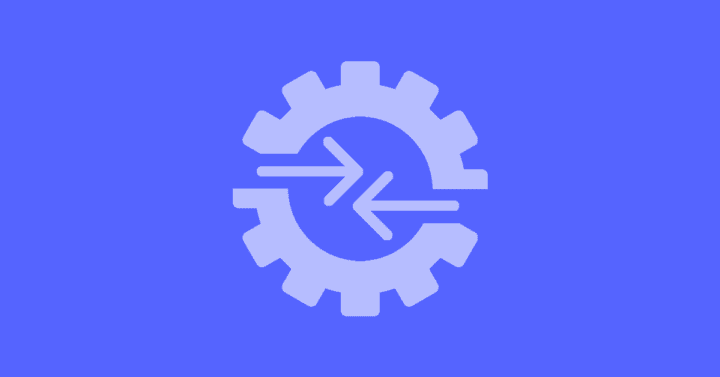In our most recent “What’s Next for Cartesis/SAP BFC Customers” blog post, we dove into the history of Cartesis and how the company came to be absorbed first into Business Objects and then SAP. We examined the key positive reasons many organizations purchased, used and liked the Cartesis/SAP BFC application. We also highlighted some of the challenges of using the application today:
- Missing capabilities such as data integration and ad-hoc reporting.
- Limited planning capabilities and the need to add a separate planning application.
- Usability concerns with a heavy administration burden for certain tasks and no workflow.
- Intercompany reconciliation/matching at balance and transaction only available with a separate web-based tool.
Ultimately, given the above challenges, current Cartesis/SAP BFC customers have 3 options to consider, as outlined in the first post in this series:
- Choice 1: Continue with legacy Cartesis/SAP BFC until support ends.
- Choice 2: Invest in SAP’s unproven next-generation products, such as Group Reporting, Analytics Cloud, Central Finance or some variant hybrid strategy.
- Requires at least one S/4 HANA Finance instance for Group Reporting.
- Choice 3: Take control of your Finance Transformation by evaluating alternate EPM strategies such as OneStream.
In this blog post, the focus will be on Choice 1
Choice 1 – Continue with Legacy Cartesis/SAP BFC until Support Ends
Many organizations are now facing the end of support for their Cartesis/SAP BFC application, currently announced for 2027. Of course, this end date could always be further extended if significant pressure is placed upon SAP by a large group of high-paying customers. This wait-and-see strategy is not, however, a reliable one for such a critical system.
The Cartesis/SAP BFC solution is considered to have “solution maturity,” so SAP has effectively ended any new functional investment in this solution and consequently plans no new release or support packages for SAP BFC 10.1. What does that mean? Essentially, even now, if an organization goes through some form of change and needs to account for something differently than before, this capability may not be available in the solution. The consultant community might not even be able to build the capability, let alone deploy it to existing SAP BFC users.
The dwindling number of professionals/consultants who can implement, configure and support the Cartesis/SAP BFC application should be a major concern. Why? Well, should an organization manage to continue successfully using the application, building any additional capabilities will be challenging at best. The impact of that reduced functionality could result in potential delays as the resource pool decreases and the remaining resources become busier.
The above concerns are just the beginning, too. Among those organizations that continue using Cartesis/SAP BFC, many other concerns apply, and some will only be further exacerbated once the 2027 end-of-support date has passed. Here are a few of such additional concerns:
- Audit risk – The looming end-of-support deadline could be picked up in audits and will most certainly be flagged post 2027. An audit flag would be visible to stakeholders and could cause concern.
- Potential Delays – Any problems or issues with the system could cause reporting problems and delays, with serious implications for maintaining deadlines and sharing information.
- IT Versioning– The end of support can bring potential issues with versions as other applications and operating systems in the ecosystem are upgraded – ongoing compatibility is important.

If you’re running Cartesis/SAP BFC, your organization made an excellent choice at the time of adoption. Many considerations likely led to that decision, and those considerations are also effective when examining what to do going forward.
5 Key Considerations
These 5 key considerations will significantly help facilitate your evaluation process and value assessment:
- Risk – Can you take the risk of running a solution that won’t be further enhanced? How will the auditors view the looming end-of-support date for this critical application?
- Efficiency – How is your team suffering from using lengthy processes, manually moving data and navigating cumbersome administration?
- Effectiveness – The effectiveness of the system to deliver will reduce, and many workarounds may be required to handle expected or unexpected change.
- ROI/TCO – The long-term costs will likely be higher to stay with Cartesis/SAP BFC due to the separate applications and the multiple integration points – plus the significant administration burden required to manage key processes.
- Evolution – You must fully understand the advancements available in the next-generation EPM applications to meet both current and future requirements. Then bring what you know into any evaluation and value assessment.
In other words, take the time to fully review your current usage of Cartesis/SAP BFC and chart the correct course forward for your organization. Choice 1 is really a delaying tactic rather than a realistic long-term option. Any rushed decision to change – for example, selecting the wrong solution because there was no time for a proper process – will only cause unnecessary pain.
Cartesis/SAP BFC was one of the most technically strong and capable solutions available when your organization purchased it. Today, you must follow the same process not only to avoid taking a downgrade in capability but also to ensure your organization moves forward with the next generation of solutions.
Move Forward with the Next Generation of CPM
OneStream’s Intelligent Finance platform is completely agnostic to ERP strategy. Rather than relying on a central ERP strategy, Intelligent Finance platforms integrate data from multiple sources – such as ERP, CRM, HCM and data warehouses – to create a single and governed version of the truth.
This interoperability is important. Why? It keeps the management layer technology independent from the transactional layers. Any IT department that forces a move to a single tech solution is setting the organization up for unnecessary costs and delays when future changes occur. And as we all know, you can never say never to changes in your business model or structure.
To learn about Choice 2 – invest in SAP’s unproven next-generation products – tune in for our next blog post in this series, in which we’ll examine the choice in more detail.
Learn more!
Ready to join the organizations that have taken the step from Cartesis/SAP BFC to OneStream? Check out our video here, and be sure to visit our website.
Get Started With a Personal Demo



